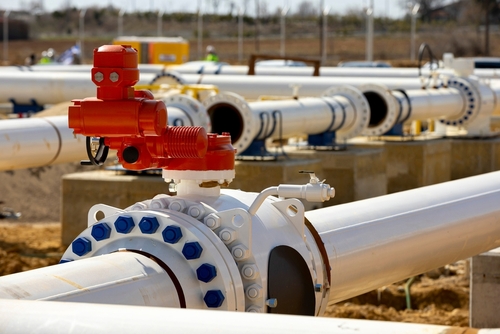
A United States appeals court decision issued July 30 blocks the federally approved construction of a nearly $1 billion natural gas pipeline expansion project that aims to serve three million customers in Pennsylvania and four other mid-Atlantic states.
“The court’s decision sets a dangerous precedent by dismissing the reliability needs of local distribution companies to satisfy the demand for energy during critical periods, such as life-threatening winter events,” said Matthew Agen, chief regulatory counsel for energy at the American Gas Association (AGA).
The U.S. Court of Appeals for the District of Columbia Circuit on Tuesday vacated the approval given in 2023 by the Federal Energy Regulatory Commission (FERC) to Transcontinental Gas Pipeline Co. (Transco) to construct its Regional Energy Access expansion project and remanded the case to the commission for a more careful review.
Transco, a unit of Tulsa, Okla.-based Williams Companies Inc., wants to expand its existing natural gas transmission system to provide year-round transportation capacity from the Marcellus Shale production area in northeastern Pennsylvania to multiple delivery points and to provide greater access to cleaner, cost-effective energy that would serve the Northeast region by this winter heating season.
In Pennsylvania, the proposed project would extend through seven counties, including Luzern, Monroe, Northampton, Bucks, Chester, Delaware, and York counties, and would consist of about 36.1 total miles of pipeline in the state. This would include building a 22.3-mile, 30-inch pipe lateral in Luzerne County, and a 13.8-mile, 42-inch pipe loop in Monroe County, according to Williams.
Additionally, modifications would be made to several existing compressor facilities, including those in the commonwealth’s Luzerne, York, and Chester counties, while other construction for the project would occur at locations in New Jersey, Delaware, Maryland, and New York.
Williams told Reuters that the court erred, but the company plans to address its concerns. The company also said the decision will not delay full implementation of the project.
AGA, which filed an amicus brief with the court in support of Transco, emphasized that the pipeline would provide vital increased supply and added reliability to the Northeast region.
AGA also cited a lack of available natural gas created by Winter Storm Elliott in 2022, when low pressures impacted delivery from pipelines across the greater New York metropolitan area.
While detailed contingency planning and excellent implementation allowed local natural gas utilities to avoid the worst, if pressures in the area had continued to decline, there could have been a loss of service requiring weeks or months of recovery while leaving untold customers in life-threatening cold without access to natural gas, the AGA said on Wednesday.
The additional capacity offered by the Transco pipeline also would play a critical role in rectifying and preventing such critical shortages during future extreme weather events, said AGA, noting that pipeline capacity to transport natural gas from Pennsylvania, the Appalachia, and the rest of the United States to the Northeast is already severely constrained.
“We know for a fact that the project will improve overall reliability and diversification of energy infrastructure in the Northeast, ease pipeline constraints, and help address current challenges, including increased natural gas prices during the winter months for consumers,” Agen said.
The court called FERC’s decision “arbitrary and capricious,” saying the agency failed to sufficiently review the natural gas pipeline’s potential greenhouse gas (GHG) emissions.
The court also held that while 73 percent of the pipeline’s capacity is pledged to natural gas local distribution companies and the pipeline was 100-percent subscribed under long-term contracts, there was insufficient evidence that the pipeline was required.